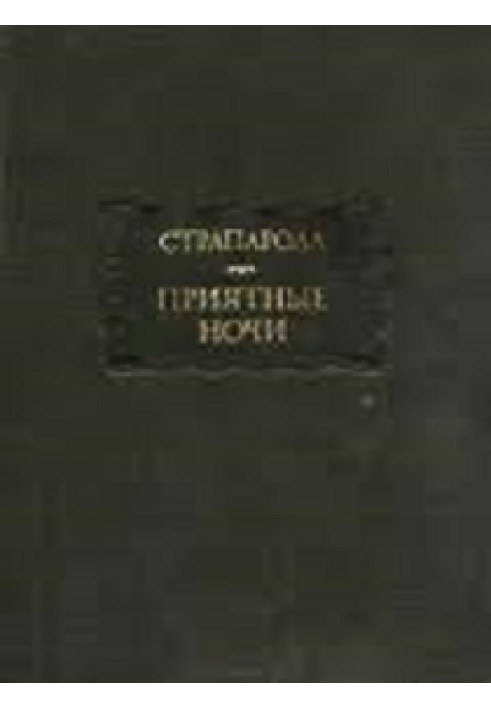Nice nights
 Instant download
Instant download
after payment (24/7)
 Wide range of formats
Wide range of formats
(for all gadgets)
 Full book
Full book
(including for Apple and Android)
Among the Italian short story writers of the 16th century. Gianfrancesco Straparele owns one of the most prominent places. A follower of Boccaccio, like many of his other contemporaries (like Giraldi Cintio, Molza, Bandello, etc.), Straparola builds his book on the model of the Decameron, and also borrows a number of plots, motifs, and situations from the great Florentine. That “cheerful free-thinking” that was so characteristic of the Renaissance and that declared itself with such obvious directness in Boccaccio’s book also finds a consistent adherent in Straparola. Straparola invariably interprets his love stories humorously, and those heartfelt experiences that overwhelm his heroes, dictated, as a rule, by a healthy natural feeling. Moreover, eroticism in the short stories of "Pleasant Nights" is largely debunked and ridiculed; this is especially obvious in those poetic “riddles” that complete each of the tales that make up the collection: sometimes carrying playful or even obscene hints, such a “riddle” turned out to be equipped with such an innocent solution that it created an additional comic effect. But it was not only this entertaining and playful nature that made Straparola’s book extremely popular among his contemporaries. Of no less importance was the writer’s appeal to folklore plots and motifs, to folk fiction (it is not for nothing that the stories in the book do not bear the title “short stories”, which is usual for the era, but are called “fairy tales”). CONTENTS: From the editor (5). Orfeo dalla Carta welcomes the lovely and lovely ladies (7). The book of fairy tales and riddles of Messer Giovan Francesco Straparola from Caravaggio begins, entitled “Pleasant Nights” (9). Book two. Greetings to the lovely and lovely ladies from Giovan Francesco Straparola from Caravaggio (194).ADDITIONSTale III. Anastasio Minuto loves a noble lady, but she does not love him. He brings down reproaches on her, and she reports this to her husband, who, condescending to Anastasio’s old age, lets him live (380). Tale IV. The Genoese merchant Bernardo sells wine diluted with water and, by God's will, loses half of the money received for it (385).
Data sheet
- Name of the Author
- Джованфранческо Страпарола
- Language
- Russian
- Translator
- Ананий Самуилович Бобович
Надежда Януарьевна Рыкова












